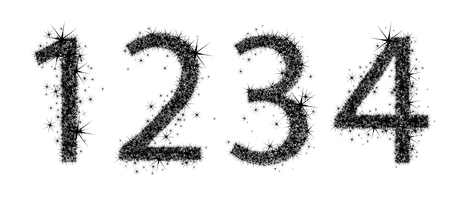Understanding Numerology in the US Context
Numerology has experienced a notable resurgence in the United States, fueled by a growing interest in alternative spirituality and holistic wellness. In recent years, Americans have increasingly turned to numerology for personal insight, self-improvement, and even life guidance. According to a 2023 Pew Research Center survey, nearly 30% of U.S. adults express belief in spiritual energies found in physical objects or the significance of numbers, highlighting numerologys integration into mainstream consciousness. This trend is particularly prominent among younger demographics seeking meaning outside traditional religious frameworks.
Within the American context, numerology often intersects with established practices such as astrology, mindfulness, and yoga. It is commonly presented alongside other metaphysical services at wellness fairs and holistic retreats, illustrating its fusion with local health and lifestyle cultures. At the same time, popular perceptions of numerology remain mixed: while many view it as a legitimate tool for self-discovery or stress relief, skeptics often dismiss it as pseudoscience or entertainment.
The widespread adoption of digital platforms has also contributed to numerologys appeal in the U.S., making personalized readings accessible through apps, online consultations, and social media influencers. However, this popularity brings new ethical challenges for practitioners—especially regarding client vulnerability, accuracy of advice, and cultural sensitivity. Understanding these dynamics is essential when offering numerology advice in an environment shaped by diverse beliefs and expectations.
Professional Responsibility and Integrity
When providing numerology advice in the US, practitioners must uphold high standards of professional responsibility and integrity. This begins with transparency—clients deserve to understand that numerology is a metaphysical practice and not a science or a substitute for professional counseling, medical, or legal guidance. Advisors should clearly explain their qualifications, the methodologies they use, and the limitations of numerological interpretations. Honesty is equally critical; making exaggerated claims or promising guaranteed results can damage both client trust and the reputation of the numerology field as a whole.
Setting Realistic Expectations
It’s essential for advisors to set realistic expectations with clients from the outset. Numerology can offer insights into personal patterns and tendencies, but it cannot predict specific future events or solve all of life’s challenges. Practitioners should communicate what clients can reasonably expect from a session, which can be summarized as follows:
| Aspect | Best Practice |
|---|---|
| Nature of Advice | Explain that insights are interpretive, not definitive predictions. |
| Scope of Service | Clarify that numerology is for self-reflection and growth, not a replacement for expert advice. |
| Outcome Guarantees | Avoid promising specific outcomes; focus on empowerment instead. |
The Importance of Disclosure
Full disclosure about fees, session length, confidentiality policies, and the voluntary nature of participation further reinforces ethical practice. In the US context, where consumer protection laws are robust and skepticism towards alternative practices can be high, such transparency builds credibility and trust. By maintaining honesty and managing expectations responsibly, numerologists can create a respectful environment that honors both their craft and their clients’ well-being.

3. Cultural Sensitivity and Inclusivity
In the culturally diverse landscape of the United States, numerology practitioners must approach their work with a heightened sense of cultural sensitivity and inclusivity. The American population is a mosaic of ethnicities, religions, and belief systems, making it essential for numerologists to recognize and respect these differences when offering advice. Practitioners should be aware that clients may come from backgrounds where numerology holds different meanings or may even conflict with personal or religious values. Therefore, using inclusive language, asking open-ended questions about a client’s comfort level, and refraining from making assumptions based on one’s own cultural framework are vital ethical practices.
Another critical consideration is avoiding cultural appropriation. Numerology, while having roots in several ancient traditions, can sometimes be presented in ways that inappropriately borrow symbols, rituals, or concepts from marginalized cultures without proper understanding or respect. This not only undermines the authenticity of the practice but can also perpetuate harmful stereotypes or cause offense. Ethical numerologists should educate themselves on the origins and significance of any cultural elements they reference and ensure that their methods do not trivialize or misrepresent these traditions.
Ultimately, fostering an environment of inclusivity means valuing each client’s unique identity and background. By prioritizing cultural sensitivity, numerology professionals not only uphold ethical standards but also build trust and credibility with a broader range of clients across the US.
4. Privacy and Confidentiality
In the United States, privacy and confidentiality are paramount when providing numerology advice. Clients expect that their personal information—such as birth dates, names, or other sensitive data—will be handled with discretion and in accordance with both ethical standards and legal requirements. Any breach of this trust can not only damage your reputation but also result in legal consequences.
US Expectations for Client Privacy
American clients value their privacy highly, particularly due to a culture shaped by laws like the Health Insurance Portability and Accountability Act (HIPAA) for healthcare professionals and the Gramm-Leach-Bliley Act (GLBA) for financial advisors. While numerologists are not directly regulated by these laws, following similar best practices helps build credibility and trust. This means obtaining informed consent before collecting or sharing any information and ensuring clients know exactly how their data will be used.
Legal Regulations
Though there is no federal law specifically governing numerology practices, several states have enacted consumer protection laws that prohibit deceptive practices or misuse of personal information. Numerologists must be aware of these regulations, especially regarding the storage and transmission of client data. Misuse of personal information can result in fines or civil lawsuits.
Best Practices for Safeguarding Personal Information
| Best Practice | Description |
|---|---|
| Data Minimization | Collect only information necessary for providing numerology advice. |
| Secure Storage | Use encrypted digital storage or locked physical files to protect client data. |
| Informed Consent | Clearly explain how information will be used and obtain written consent from clients. |
| Confidential Communication | Avoid discussing client details in public spaces or with unauthorized parties. |
| Regular Review | Periodically assess privacy policies to ensure ongoing compliance with evolving best practices and regulations. |
Conclusion: Building Trust Through Confidentiality
Upholding high standards of privacy and confidentiality not only aligns with American cultural expectations but also forms the cornerstone of ethical numerology practice. By implementing robust safeguards and transparent communication, practitioners demonstrate respect for their clients’ autonomy and foster long-term trust in the professional relationship.
5. Discouraging Dependence and Ethical Boundaries
One of the most critical ethical considerations for numerology advisors in the US is establishing clear boundaries with clients to prevent unhealthy dependence. While numerology can provide insightful perspectives and help individuals explore their life paths, practitioners must avoid positioning themselves as indispensable or encouraging clients to rely solely on readings for major life decisions. This approach not only aligns with American values of personal autonomy and self-determination but also respects the client’s right to make informed choices.
It is essential to communicate that numerological advice serves as a supplementary tool rather than an absolute guide. Advisors should openly acknowledge the limitations of their practice, reminding clients that outcomes are influenced by a range of factors—personal effort, circumstances, and sometimes, unforeseen events. By doing so, numerologists foster a sense of empowerment rather than dependency.
Additionally, ethical boundaries involve recognizing when a client’s needs exceed the scope of numerological guidance. If a client presents issues related to mental health, financial crisis, or legal matters, it is both professional and responsible to refer them to qualified professionals in those fields. This not only protects the client’s wellbeing but also upholds the integrity of numerology as a supportive—not exclusive—practice.
By discouraging dependence and maintaining clear ethical boundaries, numerology advisors contribute positively to their clients’ growth while adhering to best practices recognized across diverse advisory professions in the US.
6. Marketing Ethics and Legal Compliance
Operating within the US metaphysical services landscape requires strict adherence to marketing ethics and legal compliance, particularly for numerology practitioners.
Understanding US Laws on Metaphysical Services
While numerology is often categorized as a metaphysical or spiritual service, it is not universally recognized as a licensed or regulated profession in most US states. However, several jurisdictions impose specific requirements, such as business licenses or disclaimers clarifying that numerology advice is for entertainment purposes only. Practitioners should review local and state regulations to ensure compliance and avoid potential legal repercussions.
Advertising Best Practices
Marketing numerology services in the US demands transparency and honesty. The Federal Trade Commission (FTC) prohibits deceptive or misleading advertising practices. Numerologists must avoid making unsubstantiated claims about guaranteed results or life-changing outcomes. Instead, marketing materials should clearly communicate the nature of the service, emphasizing its entertainment or self-reflection value. Including disclaimers stating that numerology is not a substitute for professional financial, medical, or legal advice is considered a best practice.
Compliance with Consumer Protection Regulations
The US has robust consumer protection laws designed to safeguard clients from fraud and false advertising. Numerology practitioners are required to maintain accurate records, respect client confidentiality, and honor refund policies as advertised. Failure to comply with these standards can result in fines, lawsuits, or business closures. Regularly reviewing updated federal and state guidelines ensures continued compliance and builds trust with clients seeking metaphysical guidance.
Key Takeaways for Ethical Practice
Navigating marketing ethics and legal compliance is essential for sustainable success in the US numerology field. Practitioners who stay informed about relevant laws, prioritize honest advertising, and uphold consumer protections not only reduce legal risks but also strengthen their reputation as ethical advisors within the American marketplace.


